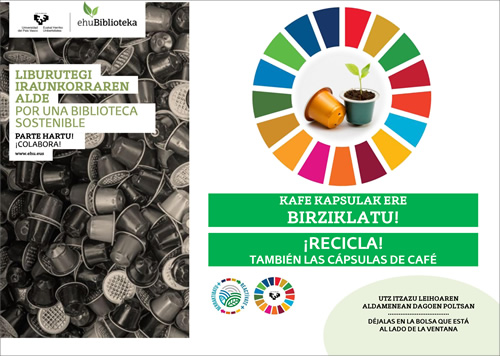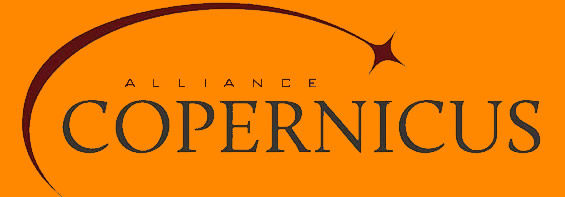
With the “Campus Planeta Plan” the University of the Basque Country strives for a healthy and sustainable environmental management policy in the framework of the EHUagenda 2030 for sustainable development. This plan aims to be a model for the whole university community to adopt new life and consumption habits in everyday practice at each campus.
Aware of the need to promote respect for the environment and to care for the planet, the University of the Basque Country (UPV/EHU) incorporated environmental sustainability in its strategy a long time ago. More recently, the Campus Planeta Plan seeks to be a benchmark for the UPV/EHU’s healthy and sustainable environmental management policy in the framework of the EHUagenda 2030 for sustainable development. This plan aims to be a model for the whole university community to adopt new life and consumption habits in everyday practice at each campus.
Activate/Reactivate+ initiatives are just some of the activities that the UPV/EHU is carrying out in its commitment to achieving the environmental objectives set in the 2030 Agenda. Both initiatives are developed by the Global Action Plan (GAP) network with the support of the Provincial Councils of Bizkaia and Gipuzkoa. GAP works towards a green and thriving planet where people can live happily without ruining the Earth we depend on. Its philosophy is based on the idea that small changes may have big impact, so that helping people living more sustainable lifestyles locally (at home, schools…) can be vital to transform our world.
In this sense, Activate/Reactivate+ initiatives are a combined to promote a change in attitude and build a sustainable university community. On the one hand, Activate+ consists of an online learning program with some simple proposals to reduce the environmental impact of our daily activities at home . More than 1,670 people have participated in Activate+ over the last three years. On the other hand, Reactivate+ aims to reduce the environmental impact of our centers and achieve a more sustainable university. This involves a more active role through the creation of action-research groups at the university, identification of gaps to be improved, evaluation of activities related to the action and communication plan, evaluation of the environmental improvement plan, and diffusion of the results.
Within this framework, in the past academic year (2018-2019), four centers on the campus of Biscay (Faculty of Labor Relations and Social Work, Faculty of Law, Faculty of Social Sciences and Communication, and Faculty of Education of Bilbao) joined, counting 124 participants. Yet, it is well-known that to be successful, the whole university needs to be involved; thus, this academic year 2019-2020, the three campuses (Campus of Biscay, Araba and Gipuzkoa) are participating and the number of participants has increased to 331. Explicitly, six additional centers are collaborating in the Reactivate+ program: Central Library (Biscay), Faculty of Pharmacy, and Faculty of Labor Relations and Social Work (Araba), Faculty of Informatics, Engineering, and Carlos Santamaria (Gipuzkoa). The topics selected vary from water and waste management to energy consumption and eating habits.
